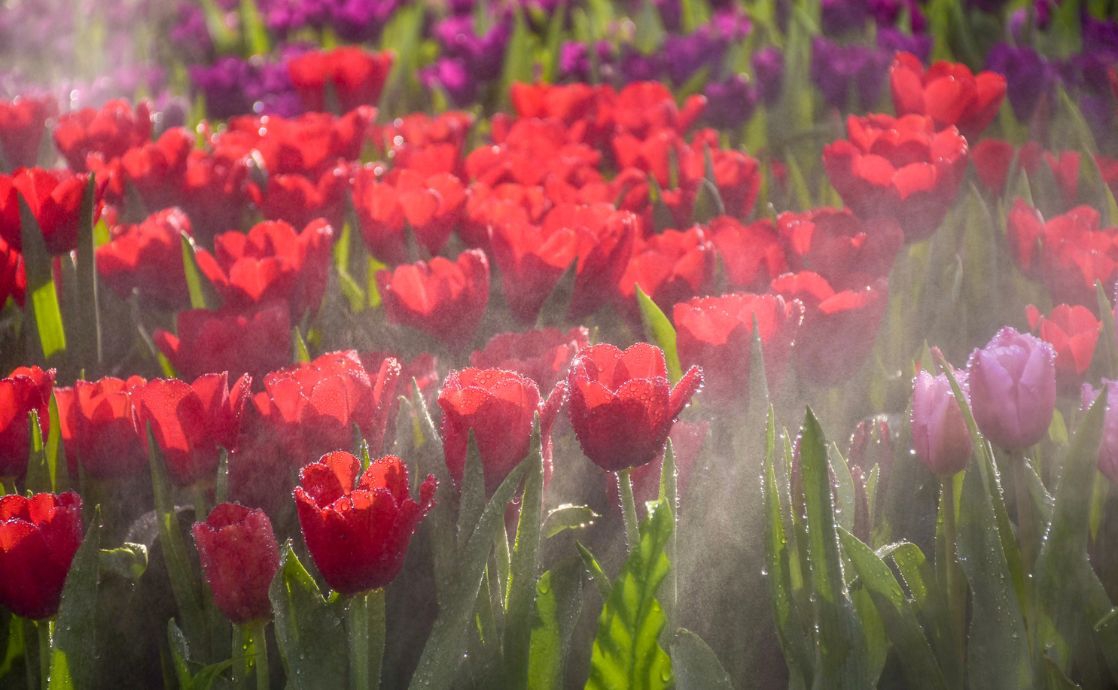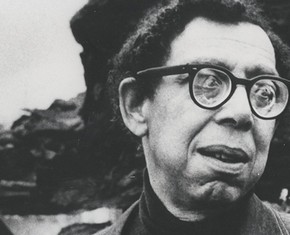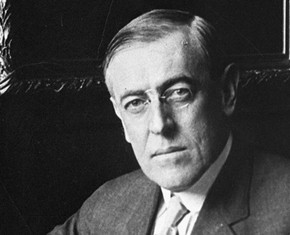The views expressed in our content reflect individual perspectives and do not represent the authoritative views of the Baha'i Faith.
Starting today, and for the next twelve days, Baha’is all around the world will celebrate Ridvan, which means “paradise,” the holiest and most joyous time of the Baha’i year.
Pronounced rez-vahn, the Baha’i teachings refer to this 12-day period every spring as “the King of Festivals,” because it marks the anniversary of the declaration of a new religion in an earthly paradise of a rose-scented, birdsong-filled garden.
RELATED: From Prison to Poverty and Exile: Baha’u’llah’s Journey
That actual garden, named Ridvan or Paradise by Baha’u’llah, witnessed the birth of the Baha’i Faith, the world’s newest independent religion, in April of 1863.

It happened on a verdant island in the Tigris River near Baghdad. The garden on that island marks the exact spot where Baha’u’llah first declared his mission and inaugurated the Baha’i Faith, as he recounted in his Book of Certitude:
Consider how all created things eloquently testify to the revelation of that inner Light within them. Behold how within all things the portals of the Ridvan of God are opened, that seekers may attain the cities of understanding and wisdom, and enter the gardens of knowledge and power. Within every garden they will behold the mystic bride of inner meaning enshrined within the chambers of utterance in the utmost grace and fullest adornment.
A decade before his momentous declaration, in 1853, the Persian government had exiled Baha’u’llah to Baghdad, fearing the rapid spread of his teachings and their progressive impact on society. In April of 1863, because Baha’u’llah’s message of oneness and harmony continued to spread and threaten the clerics and their hold on power, he faced another exile – described in Star of the West Magazine by Jinab-i-Fadil:
At last the enemies of the Cause secured from the government authorities an order banishing Baha’u’llah from Baghdad. It first read that he should go, alone. But later this was changed, permitting his family and a few followers to accompany him. The band of exiles left Baghdad and paused, first, in a beautiful garden outside the city. Here they sojourned for twelve days. A tent was pitched for Baha’u’llah, and around it the tents for the others. These days in the garden are called “The days of Ridvan” and they are of supreme importance, for it was then that Baha’u’llah declared, to a few followers, his great mission and began to build the palace of peace and unity for the world. He revealed many wonderful verses which sing the melodies of the New Day of God.
When the twelve days were over, the party, mounted on horses and donkeys and guarded by Turkish soldiers, set out again. The believers who could not accompany them were utterly broken-hearted. It was as though Baha’u’llah was a king starting upon a glorious journey. Outwardly, an exile – but in his spirit a great light was shining.
Baha’u’llah, his family, and the band of exiles and believers who accompanied them faced a grueling, arduous overland journey to Constantinople. It took them four months of traveling, on foot and horseback, through the deserts and mountains of Asia Minor in the heat of the summer. During that period Baha’u’llah continued to proclaim the mission of his new Faith – the oneness of humanity and peace between all nations – to a widening circle of new adherents and followers in each village they passed through.

This profound announcement transformed the occasion of Baha’u’llah’s banishment from crisis to victory.
RELATED: How Baha’u’llah’s Followers Learned Not to Fear Death
The flower pots on the ground mark the location of the bench where Bahá’u’lláh often sat when He visited the replica of the Ridvan garden in Israel, c. 1920
So each year in April, the twelve days of Ridvan – which Baha’is observe this year from sunset on April 20th to sunset on May 2nd – commemorate Baha’u’llah’s sojourn in the garden, and joyously celebrate the birth of his new Faith. To commemorate and observe this holiday, Baha’i communities and their friends around the world remember the eve of Baha’u’llah’s banishment from Baghdad to Istanbul, not as a time of sorrow or regret, but as a happy festival of revelation and renewal.
In that way, the Ridvan Baha’i holy days symbolize the power of the prophet of God to bring forth light from darkness and win triumph from seeming defeat, as Abdu’l-Baha said in this 1912 speech he gave in New York City:
The Persian government believed the banishment of [Baha’u’llah] from Persia would be the extermination of his cause in that country. These rulers now realized that it spread more rapidly. His prestige increased, his teachings became more widely circulated. The chiefs of Persia then used their influence to have Baha’u’llah exiled from Baghdad. He was summoned to Constantinople by the Turkish authorities. While in Constantinople he ignored every restriction, especially the hostility of ministers of state and clergy. The official representatives of Persia again brought their influence to bear upon the Turkish authorities and succeeded in having Baha’u’llah banished from Constantinople to Adrianople, the object being to keep him as far away as possible from Persia and render his communication with that country more difficult. Nevertheless the cause still spread and strengthened.
Baha’is believe that Baha’u’llah’s announcement of his new revelation in the paradise of the Ridvan garden brought a new, inner paradise to humanity.

During that first day of Ridvan in 1863 Baha’u’llah revealed the Suriy-i-Sabr, known as the “Tablet of Job.” In it, Baha’u’llah wrote a sentence that revealed one of the great themes of the Baha’i teachings, the concept of progressive revelation and the inherent unity of all religions:
God hath sent down His Messengers to succeed to Moses and Jesus, and He will continue to do so till ‘the end that hath no end;’ so that His grace may, from the heaven of Divine bounty, be continually vouchsafed to mankind.
A decade later, in 1873, Baha’u’llah referred to that first day of Ridvan as the moment when all humanity was “immersed in the sea of purification:”
Verily, all created things were immersed in the sea of purification when, on that first day of Ridvan, We shed upon the whole of creation the splendours of Our most excellent Names and Our most exalted Attributes. This, verily, is a token of My loving providence, which hath encompassed all the worlds.
















Comments
Sign in or create an account
Continue with Googleor